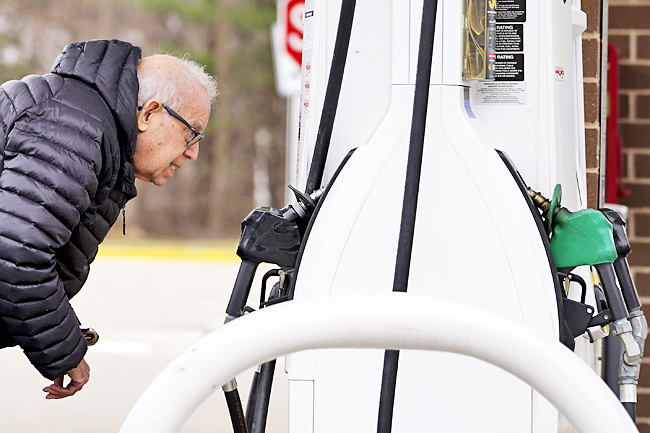LONDON (AP) – OPEC and allied oil producers including Russia are deciding how much crude to pump to the world, with expectations for only a modest increase despite pleas for more. High oil prices are fuelling inflation in the United States (US) and other countries and cushioning the blow of Western sanctions over Russia’s invasion of Ukraine.
Analysts expect the group, known as OPEC+, to stay on its schedule of gradual increases to restore production cuts made during the depths of the coronavirus pandemic in 2020.
So far, that steady pace has meant adding 400,000 barrels per day at the start of each month. Beginning in May, the level is to be adjusted slightly upward to 432,000 barrels because of revised baseline production levels, according to the August edition of OPEC’s official monthly bulletin.
The modest monthly increases have not helped ease spikes in the price of oil tied to rebounding global demand for fuel for cars, trucks and airplanes. The war in Ukraine and sanctions against Russia, the world’s largest oil exporter with some 12 per cent of global supply, have also fed higher prices over fears its flows might be disrupted.
Oil prices slumped on expectations of a new release, but analysts at UniCredit bank said the impact of such moves on prices “is usually short-lived”. That’s because reserves are finite, and the production shortfall is open-ended. Once reserves fall below a certain level, the market might fear they would be insufficient to combat a further shortfall and prices would go up.
Higher oil prices also mean more export earnings and tax revenue for the Russian government, cushioning to some extent the crushing sanctions imposed on Russian banks and companies as well as the impact of foreign companies shuttering their businesses in the country.
Some buyers are avoiding Russia’s oil even though Western sanctions permit banks to process energy payments. Buyers don’t want to be associated with the war or are afraid a sudden tightening of sanctions could leave them with Russian oil they can’t sell.
Also boosting prices is the inability of some OPEC+ members to fulfill their production quotas.
OPEC’s de facto leader, Saudi Arabia, and the United Arab Emirates (UAE) have spare production capacity but have held off increasing their output and upsetting the group’s agreed-upon allotments. Both Saudi Arabia and the UAE voted for a United Nations resolution calling for Russia to withdraw from Ukraine but have stressed that they see the role of OPEC+ as stabilising world oil markets and separate from international politics.







